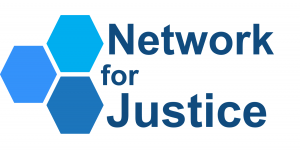2024 June Justice and Innovation Group
The session explored how can we learn from open access and LegalTech AI systems to support our work and help more people in need.
It included demonstrations and presentations from key players in the AI and justice space, including Simplexico, the Legal Services Board, Tabled and Northumbria University, Citizens Advice Stockport, Oldham, Rochdale and Trafford (CASORT), and Wyser.
Key learnings
- AI systems are increasingly being incorporated into the work of the legal sector. We are likely to see an increasing use of these platforms to scale expertise and close the gap in demand for legal services.
- AI is also increasingly being used by those in need of legal advice who access open-sourced tools such as ChatGPT. However, it’s important to be aware of potential risks in order to properly safeguard users.
- AI-driven systems often have inbuilt bias against marginalised users. Taking a targeted and specific approach to safeguarding on a tool-by-tool basis is a more effective tactic than trying to combat bias within broad delivery models, such as LLMs.
- AI applications to new and existing tech developments may help to increase the impact and quality of service for people using technology to access legal advice. AI should seek to scale up rather than replace the human touch.
- AI can help support the work of frontline organizations in that they are efficient, accurate, and cost-effective. Challenges faced in implementing AI include the lack of regulation, significant costs associated with technology adoption, and the need for tech expertise within the sector.

